Short version: LibraryThing is and will remain a book site. But we never stopped people from cataloging other media, like movies and music. We’re now making it much easier to do. Check it out and add your non-book library at https://www.librarything.com/addbooks.
Medium version: LibraryThing is a book site, and will remain so. But many members, especially our small libraries, have always cataloged other media, such as movies and music. We allowed it, but didn’t support it well at all. In particular, we disabled non-book searching on Amazon, allowing it only on our library sources.
A few months ago we introduced a robust concept of media format. We’ve now opened up cataloging other media on the Amazon sources, which are far easier and better for the purpose.
Check it out at https://www.librarything.com/addbooks
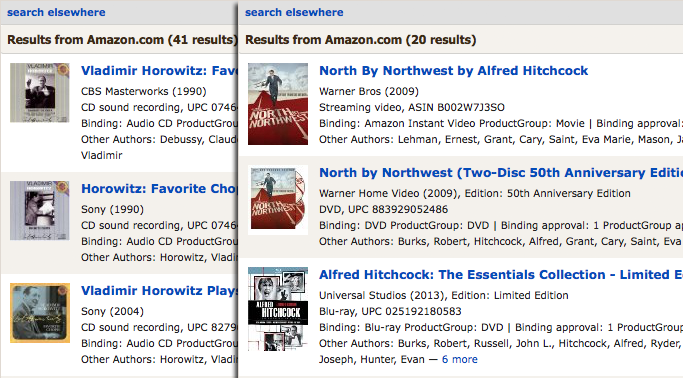
Long version:
Why Are We Doing This? Adding other media has been planned for years. The main driver has been small libraries—churches, community centers, small museums, etc.—a major constituent of LibraryThing’s success. Although small libraries mostly collect books, they don’t limit themselves to books any more than public and academic libraries do. Our failings in the area really hurt us.
This change means that LibraryThing is now a “complete” cataloging system. This lets us reach small libraries as we never could before—something we plan to do even more strongly when TinyCat debuts.
We are also conscious that many “regular” members wanted to catalog their non-book libraries. I want to, anyway, and I know I’m not alone.
Worried? We are conscious of some members’ worries, for example that LibraryThing is “turning into” a movie site. These are valid concerns. Here’s how we responded and will respond:
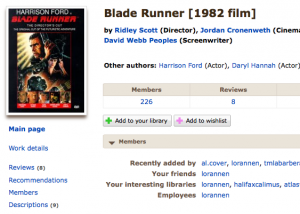
Movies have been on LibraryThing for a long time.
- LibraryThing is a site for book lovers and readers. This isn’t going to change.
- Books get me and the rest of the team up in the morning. That isn’t going to change.
- LibraryThing has had movies and music since the beginning—hundreds of thousands are already cataloged. Directors and composers have had author pages since the beginning. The recommendations system has recommended movies and music since the beginning. If movies “pollute” LibraryThing, it’s been polluted for a long time.
- Now, however, we know what’s a book, a movie, and so forth. Knowing means we can adapt the site’s features to deal with that. As a start, by popular request, we’ve changed our site search to “facet” by format. Other accomodations, like a way to refuse all non-book recommendations, can certainly be considered.
- We don’t expect a crushing influx of non-book media or members. But if LibraryThing appeals to new people who want to catalog all their media, that isn’t a bad thing.
New Features. The following features have been added, or changed, in order of importance.
- Add Books sources now include music, movies and combined sources for all the Amazon national sites (e.g., “Amazon.com books, music and movies”).
- To build awareness, we’ve added one “Amazon books, music and movies” source to all members’ sources. If you don’t want it, the new Add Books sources system makes it easy to delete. There are also sources for just movies and just music.
- Amazon-added movies and music have covers, based on the ASIN, not the ISBN. This change also gives LibraryThing ebook covers.
- We’ve added media-based faceting in site search.
- You can search both Amazon and Overcat by UPC.
Cataloging Non-Books Media. Movies and music aren’t books, but libraries catalog them with some of the same basic structure and concepts. Movies and music have titles, publication dates, subjects, Dewey classifications, etc. “Authors” is more complex. Library records generally mix directors, actors, producers and screenwriters into one set of contributors, with their roles not always marked. Amazon records are better here, clearly delineating the various roles. But they don’t have the name-control libraries have.
We’ve solved this as follows:
- When possible, movies get director as their main author. This is always possible with Amazon records, but not with library records.
- We’ve improved how we handle author names from Amazon, leveraging Amazon data against what we know from tens of millions of library records. So, for example, we’re handing “The Beatles” as “The Beatles” not “Beatles, The.” This change improves Amazon cataloging generally.
- Where listed, actors, producers, musicians and so forth get secondary author status and roles. This means that actors have LibraryThing author pages. (But they had them before, as noted above. If this proves a problem, we can mark them somehow as a site-wide feature.)
- We’ve improved media format detection of MARC records within Overcat, especially for odd MARC formats, like DANMARC (a specialized MARC format used in—you guessed it—Denmark).
Let Us Know. Let us know what you think on Talk.





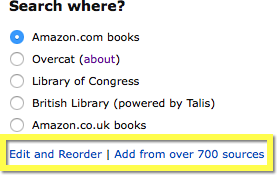
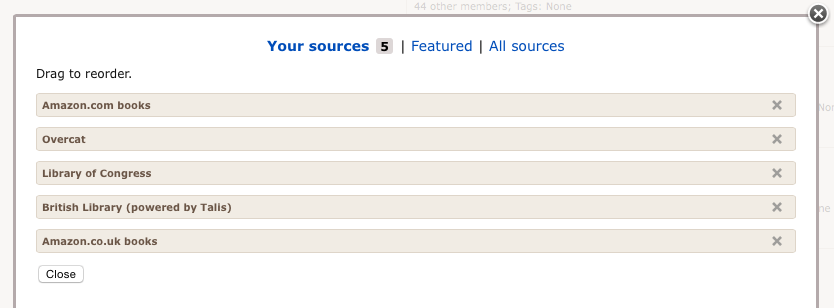




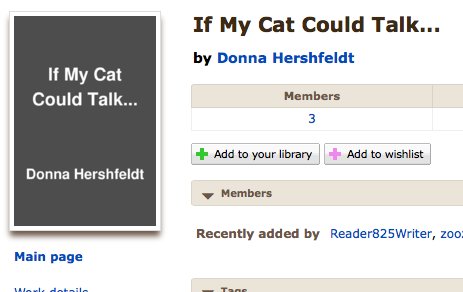







 Publishers do things country-by-country. This month we have publishers who can send books to the US, Canada, the UK, Israel, Australia, France, Germany, and many more. Make sure to check the flags by each book to see if it can be sent to your country.
Publishers do things country-by-country. This month we have publishers who can send books to the US, Canada, the UK, Israel, Australia, France, Germany, and many more. Make sure to check the flags by each book to see if it can be sent to your country.





















































































